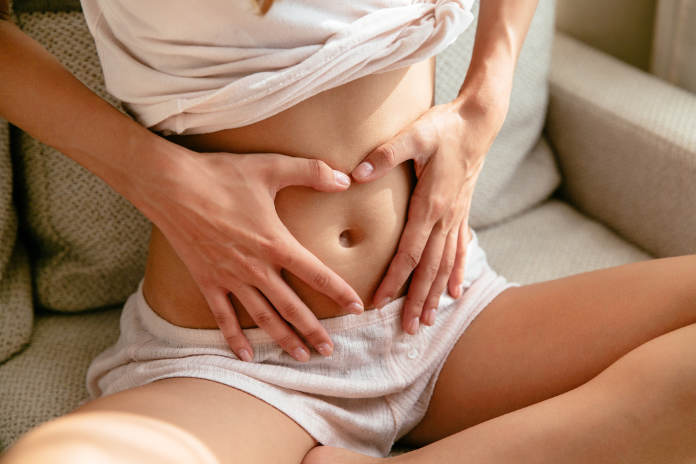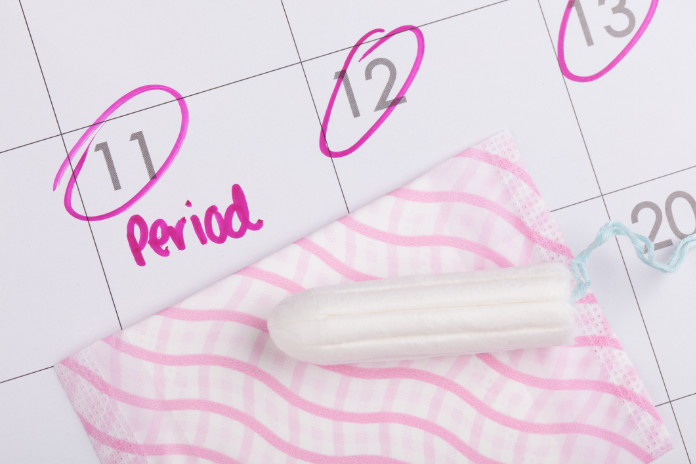You know the score – you start the day feeling pretty confident, with plenty of room in your trousers to breathe easily. But come lunchtime, your entire midsection has ballooned out of control and your body is randomly firing out gurgling noises in the middle of an important work meeting.
Not only is it really uncomfortable, it’s embarrassing too.
Bloating is a pretty common issue here in the UK – it affects millions of us on a daily basis. But according to experts, it’s usually related to what you eat, so a few simple tweaks to your daily diet should help to get rid of that ‘need to undo my top button’ feeling.
5 reasons you may be feeling bloated
Here, we uncover the most common reasons why you might be bloated, and what you can do to combat it.
1. You’ve got too much gut bacteria
When it comes to gut flora, it can be difficult to strike the perfect balance. Your friendly bacteria should be thriving, but not so much that they overpopulate and abundantly grow in the small intestine.

“Too much bacteria in the small bowel means that everything you eat is going to produce gas – and that’s going to make you feel bloated,” says Dr Anthony Hobson, director of the Functional Gut Clinic (thefunctionalgutclinic.com). When your bacteria ferment carbohydrates, they produce gas – and the more bacteria, the bigger the bloat.
“If you think your gut is out of sync, you can have a simple breath test to look for bacterial overgrowth,” says Dr Hobson. A GP can then advise you on the best dietary changes to keep your microbiome in check, or even prescribe a round of antibiotics if necessary.
2. You’ve got a sensitive gut
Irritable bowel syndrome is a common condition of the digestive system that can cause bloating alongside cramps, diarrhoea and constipation. It affects up to 1 in 5 people at some point in their life, and it usually first develops when a person is between 20 and 30 years of age.
IBS is a long-term condition with no quick fix, but the unpleasant symptoms can be better managed by steering clear of foods that make your symptoms worse.
“There are certain trigger foods that are worse than others,” says Hobson. “Onions and garlic are common, which is why the low-FODMAP diet is so popular now. Keep a food diary and track any meals that cause noticeable changes to your stomach.”
3. Too much wine and other sugary drinks

Plenty of us love to uncork a fresh bottle after a stressful day, but that large glass of wine on the sofa might be your hidden enemy when it comes to bloating – and it’s all down to the sugar content.
“Wine contains fructose which is quite difficult to digest in quantities of more than 25g,” says Hobson, who notes that the same is true of sugary soft drinks.
“Even if you opt for prosecco instead, which is quite low in sugar, the bubbles may still play havoc with your tummy, triggering IBS symptoms such as cramps and bloating.”
4. Eating large portions and not chewing your food properly
When it comes to keeping a ‘food baby’ at bay, taking time to properly digest your dinner can make all the difference.
“It’s important to eat smaller portions of certain foods, chew food well and eat slowly,” says Hobson. “Also, do core exercises with yoga breathing to help strengthen your diaphragmatic and abdominal muscles.”
5. PMS & hormones
Along with aches, cramps and mood swings, another undesirable effect of getting your monthly period is the inevitable bloating that comes along with it,
A survey by Care Agnus Castus PMS Relief Capsules found that half of women suffer with bloating because of premenstrual syndrome.

Registered nutritionist Dora Walsh explains: “Many of my clients think that they have a food allergy due to regular bloating. In fact, it’s often due to the high levels of progesterone, which begin to rise as soon as ovulation occurs.
“This causes changes in the body such as water retention and increased blood flow to the uterus. Your digestive system can also become more sluggish, leading to constipation.
If you suffer from monthly bouts of period bloating, Walsh recommends that you drink lots of water to help flush the system, and avoid highly processed or salty foods that could make it worse.
The final word…
If you’re looking to reduce bloating, Hobson advises that you identify and avoid your triggers and, if you’re concerned, speak to your GP about your symptoms. A pharmacist may also recommend taking anti-spasmodic medication such as Buscopan IBS Relief (£4.99 for 20 tablets, buscopan.co.uk), which can help to relax the gut muscles.
Finally, Hobson recommends that you should steer clear of painkillers as these are “poorly effective in the gut” and in the long-run, they can make those pesky symptoms feel even worse.
You may also be interested in…































































